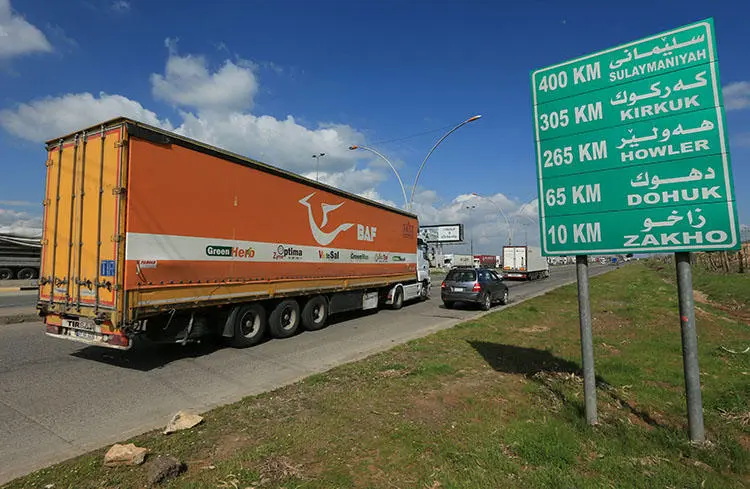New York, May 18, 2020 — The Committee to Protect Journalists today condemned the detention of at least eight Kurdish Iraqi journalists covering a protest in Duhok on May 16 and called on the authorities in Iraqi Kurdistan to drop all charges pending against four of them.
On May 16, Kurdish security forces arrested at least eight journalists working for media outlets affiliated with the Kurdistan Islamic Union (KIU) and the Patriotic Union of Kurdistan (PUK) opposition parties while they were covering a protest by public officials against unpaid salaries in Duhok, a city in western Iraqi Kurdistan, according to the local press freedom organization Metro Center for Journalists’ Rights and Advocacy, the Iraqi press freedom group Press Freedom Advocacy Organization in Iraq, and Abdulkareeem Ahmed, general manager of the KIU-affiliated broadcaster Speda TV, who spoke to CPJ via messaging app yesterday and today.
Those arrested were Speda TV reporters Azad Mukhtar, Ali Shali, and Akram Guli; Speda TV cameraman Hajar Salman; director of the KIU-affiliated broadcaster Khabir TV, Maher Sakfan; director of the KIU-affiliated Khabir Radio, Ahmad Sharnakhi; reporter for KIU-affiliated news website PRS Media, Omed Haji; and Karwan Sadiq, a reporter for the PUK-affiliated broadcaster Gali Kurdistan, according to the Metro Center and Abdulkareem Ahmed.
The same sources and Ramadhan Artesey, the lawyer representing the journalists, said the security forces also seized the journalists’ equipment; held Mukhtar, Salman, Sadiq, and Sali for several hours; and held the remaining four until today, when they were released on 2 million Iraqi dinars ($1,680) bail after being charged under Law 11 regulating the organization of demonstrations. Artesey spoke to CPJ via messaging app today.
“Once again the Kurdish authorities in northern Iraq have used the laws at their convenience to stamp out news coverage that makes the government uncomfortable,” said CPJ’s Middle East and North Africa Representative Ignacio Miguel Delgado. “We call on the Kurdistan Regional Government to drop the charges against Akram Guli, Maher Sakfan, Omed Haji, and Ahmed Sharnakhi, and allow all journalists to do their jobs freely and without fear of reprisal.”
Azad Mukhtar told CPJ on the phone yesterday that security forces seized their equipment as soon as they got out of the car, accusing them of being troublemakers and saboteurs.
“Initially they didn’t arrest the Speda TV crew. We were waiting for them to give us back our equipment, when they arrested us and took us to a police station, where we were held from 3:30 to 9 p.m. At the station they asked us to sign a testimony, but we refused and requested to see our lawyers before signing anything. They tried to intimidate us by saying that they could force us to sign 10 testimonies and not see our lawyers. We eventually signed it. When we were released, they returned our equipment and the lens cap of the camera was broken,” Mukhtar said.
Ahmed, general manager of Speda TV, told CPJ yesterday that his staff was arrested while they were covering the protest organized by teachers who have not been paid their salaries in months.
“They didn’t engage in activism. They were reporting on the protest,” he said.
The lawyer Artesey told CPJ that Akram Guli, Maher Sakfan, Omed Haji, and Ahmed Sharnakhi appeared before a court today along with teachers and activists under Law 11 regulating the organization of protests. That law requires advance permission for protests from the Interior Ministry, according to Human Rights Watch.
“The journalists were not tried under the Kurdistan Press Law and they were released today on bail of 2 million Iraqi dinar. The case isn’t over yet and the journalists will have to attend future trials,” he said.
Ahmed told CPJ today that the journalists were given back their cell phones upon being released.
The Metro Center cited the Duhok Governorate Security Council as saying that protesters did not have permission to demonstrate in the city and would be held responsible in accordance with the law.
[Editors’ note: The text in the 13th paragraph has been updated to include a response from Zebari.]
